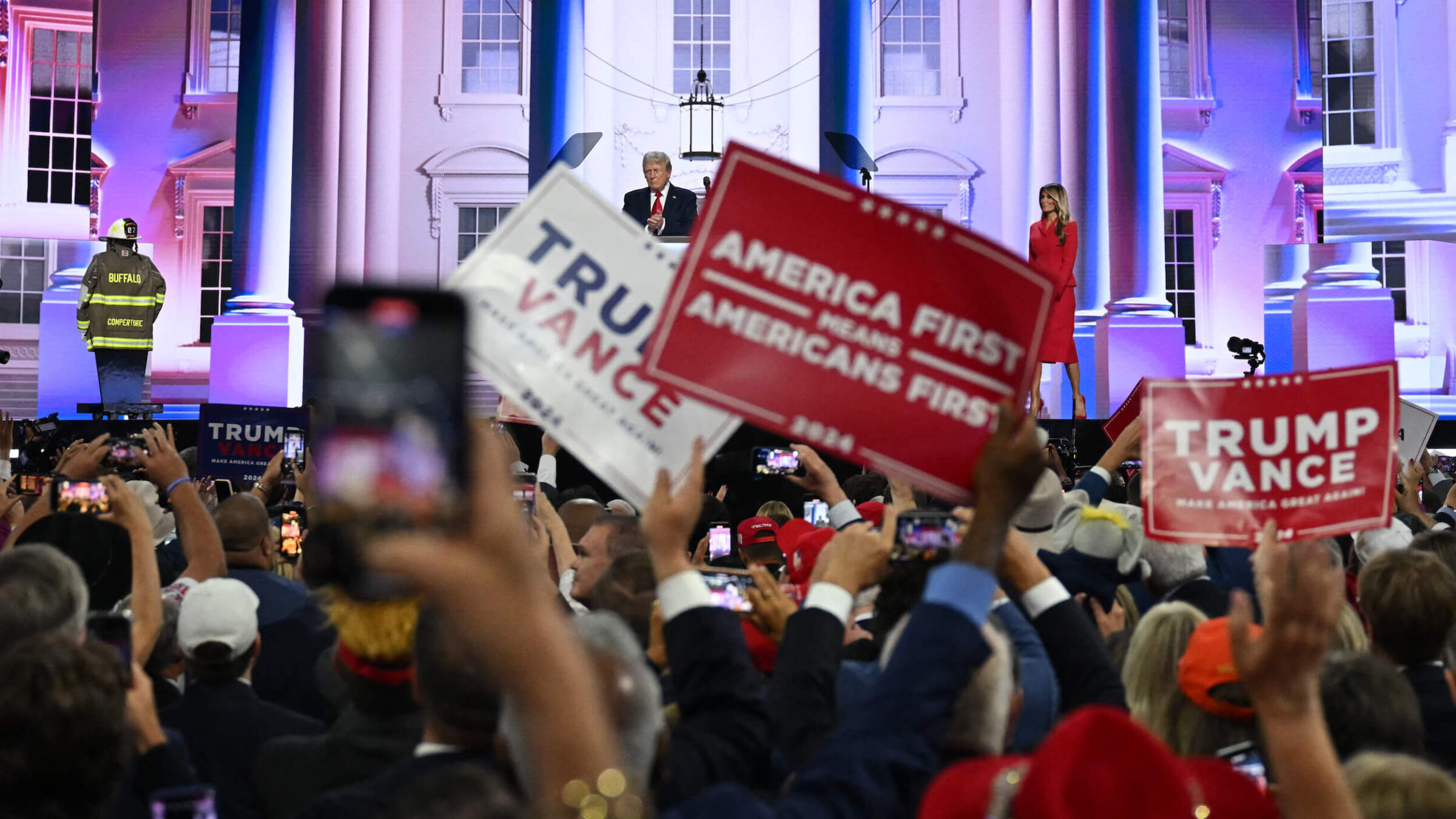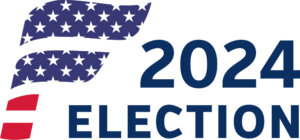Not just Trump: Antisemitism is pervasive in the Republican Party
Trump’s latest comments on Jews are shocking, but they’re also a natural extension of the evolution of the GOP

Are former President Donald Trump’s controversial latest comments on Jews a reflection of broader trends in the Republican Party? Photo by Jim Watson/AFP/Getty Images
The most maddening thing about Donald Trump is that everything he does is a diversion from everything else he’s done. It’s impossible to keep up. In recent months, many conversations have gone like this: Did he say something stupidly sexist? Or racist? Or Islamophobic? Did he announce he wants to be a dictator on day one? Did he suck up to the murderous Vladimir Putin (again)? Did he pal around with the malevolent lunatic, Laura Loomer? Did he accuse Haitian immigrants in Ohio of kidnapping and eating household pets? Did he quote the fictional cannibal Hannibal Lecter?
 Have I left anything out? Yes, plenty as a matter of fact. For instance, the part about engendering potentially murderous antisemitism.
Have I left anything out? Yes, plenty as a matter of fact. For instance, the part about engendering potentially murderous antisemitism.
Truth be told, Trump’s consistent embrace of antisemitic tropes is one of the least weird, and most consistent, aspects of his politics. Unlike say, cat-eating immigrants or cancer-causing windmills, the antisemitic tropes on which he tends to lean — most recently by suggesting Jews would bear serious blame if he loses the November presidential election — have long been a staple of right-wing politics in America.
The late Rep. John Rankin, who helped to found the infamous U.S. House Committee on Un-American Activities, warned the nation of the “alien-minded communistic enemies of Christianity” who were “trying to take over the motion-picture industry.” Lest anyone remain confused about who he meant, Rankin — who was a Mississippi Democrat, before the party’s embrace of the Civil Rights Movement sent his ilk into the arms of Republicans — said the threat he identified had “hounded and persecuted our Savior during his earthly ministry, inspired his crucifixion, derided him in his dying agony, and then gambled for his garments at the foot of the cross.” Now, this same group of “long-nosed reprobates” was out “to undermine and destroy America,” one movie theater at a time.
Decades later, as Evangelical Christians grew to become the Republican party’s base, antisemitic attitudes in that party grew more and more common. Speaking to a 1979 “I love America” rally in Richmond, Virginia, Pastor Jerry Falwell, a Republican stalwart, said, “I know a few of you here today don’t like Jews, and I know why,” adding that Jews, “can make more money accidentally than you can on purpose.” In his 1991 book, The New World Order, televangelist Pat Robertson — who would address the Republican National Convention the following year — spewed conspiracy theories that read like an update of The Protocols of the Elders of Zion.
More recently, John Hagee, founder of Christians United for Israel — the world’s largest pro-Israel organization — described Hitler as a “hunter” sent by God to convince “the Jewish people … to come back to Israel.”
Such sentiments in the Republican Party have metastasized in recent decades. In the case of the Christian nationalists, an increasingly powerful bloc within the GOP, they are part and parcel of the group’s hardline support for Israel. (All, alas, in the hopes of provoking the rapture, during which all believing Jews will go to Hell.) Yet right-wing Jews have tended to look the other way when it comes to their party peers’ nasty ideas about Jews.
Regarding Falwell and Robertson, for instance, the neoconservative “godfather” Irving Kristol put the trade-off as follows: “It is their theology, but it is our Israel.” Commentary’s long-term editor Norman Podhoretz offered a pass to Robertson’s Jewish conspiracy theories on similar grounds, saying his pro-Israel politics “trumps the antisemitic pedigree of his ideas.”
“Israel was, after all, the most important issue of Jewish concern,” Podhoretz insisted; on that issue, he said, Robertson was “on the side of the angels.”
All of this is to say that, when Trump says something shocking about Jews — which he inevitably does, just as he inevitably says shocking things about immigrants, women, or Vice President Kamala Harris’ racial identity — it’s a distraction. We become so focused on his singular bigotry that we can forget that he is not an aberration within the Republican Party, but in many ways a representation of the values it has long perpetuated.
Yet under Trump, Republicans have grown even more brazen about appealing to the antisemites in their midst. We got a hint of what was coming, when, during the final days of the 2016 campaign, Trump ran a commercial attacking George Soros, Goldman Sachs CEO Lloyd Blankfein, and Federal Reserve chair Janet Yellen — all of them Jews — claiming that they were seeking to control the world. Two years later, during the 2018 midterm elections, House majority leader Kevin McCarthy warned on Twitter that Soros and his fellow Jewish billionaires Michael Bloomberg and Tom Steyer were trying “to BUY this election!”
Fox Business Network host Lou Dobbs invited a guest to make the ridiculous argument that the (largely imaginary) migrant caravan supposedly about to “invade” the United States at its Mexican border was part of a plan hatched by the “Soros-occupied State Department.” This notion was picked up by his Fox colleague Maria Bartiromo, who asked, “Who do you think is behind these caravans? A lot of speculation that it was George Soros.”
It was a short distance from these claims to Marjorie Taylor-Greene and her apparently sincere concerns about the effects of “Jewish space lasers.” Different issues, sure; but a blame game stemming from the same antisemitic rot.
And yet Trump’s latest comments on Jews are different from his previous ones in one notable way — not just for him, but also for the mainstream within his party. What was new in Trump’s tirade last week was the explicit menace of his promise.
Trump did not say anything new, for him, when, speaking on Thursday, he insisted, “I’m the one that’s protecting you.” Nor was it new when he explained that Democrats “are the people that are going to destroy you.” We have long heard him claim, “Any Jewish person that votes for Democrats hates their religion.” Not only that, “They hate everything about Israel, and they should be ashamed of themselves because Israel will be destroyed.” Trump’s Rosh Hashanah greetings last year announced that liberal Jews who did not support him — which is most of us, by the way — had “voted to destroy America & Israel.”
But by saying that “the Jewish people would have a lot to do with a loss” if Harris wins in November, he was clearly laying the groundwork for the same sorts of accusations against Jews that were prominent in Nazi Germany in the period leading up to World War II. Given the violence we witnessed from Trump’s die-hard supporters on Jan. 6, among many other instances, it’s not hard to imagine that such rhetoric might be understood by some of his minions as an invitation to an actual American pogrom. (Remember, recent protests on elite college campuses against Israel notwithstanding, extensive academic research clearly demonstrates that “the epicenter of antisemitic attitudes is young adults on the far right.”)
The reaction of the leaders of the professional American Jewish community was naturally critical — but nowhere near critical enough. Both the ADL and AJC put out tweets strongly criticizing Trump’s remarks, although neither apparently thought it appropriate to come out and directly deem them “antisemitic” — even though the ADL now automatically codes every single pro-Palestinian protest on America’s campuses as such. A reaction more appropriate to this perilous moment appeared in a tweet from Rabbi Rick Jacobs, President of the Union for Reform Judaism.
“President Trump, your words preemptively blaming Jews for your potential election loss is of a piece with millennia of antisemitic lies about Jewish power,” Jacobs wrote. “It puts a target on American Jews. And it makes you an ally not to our vulnerable community but to those who wish us harm. Stop.”
It’s time to call it like it is. One cannot be an ally to the Jewish community only when it suits your personal needs. President Trump, your words preemptively blaming Jews for your potential election loss is of a piece with millennia of antisemitic lies about Jewish power. It…
— Rabbi Rick Jacobs (@URJPresident) September 20, 2024
The really scary thing about Trump’s antisemitism — and that which ferments among his supporters — is that while it is consistent with historic beliefs held by American conservatives, it is now tied to a general removal of all guardrails when it comes to the political behavior of the Republican Party. Many safe and secure American Jews grew up with grandparents who lived through the Holocaust warning us that the next pogrom might be just around the corner. We laughed at their paranoia. We’re not laughing anymore.

















